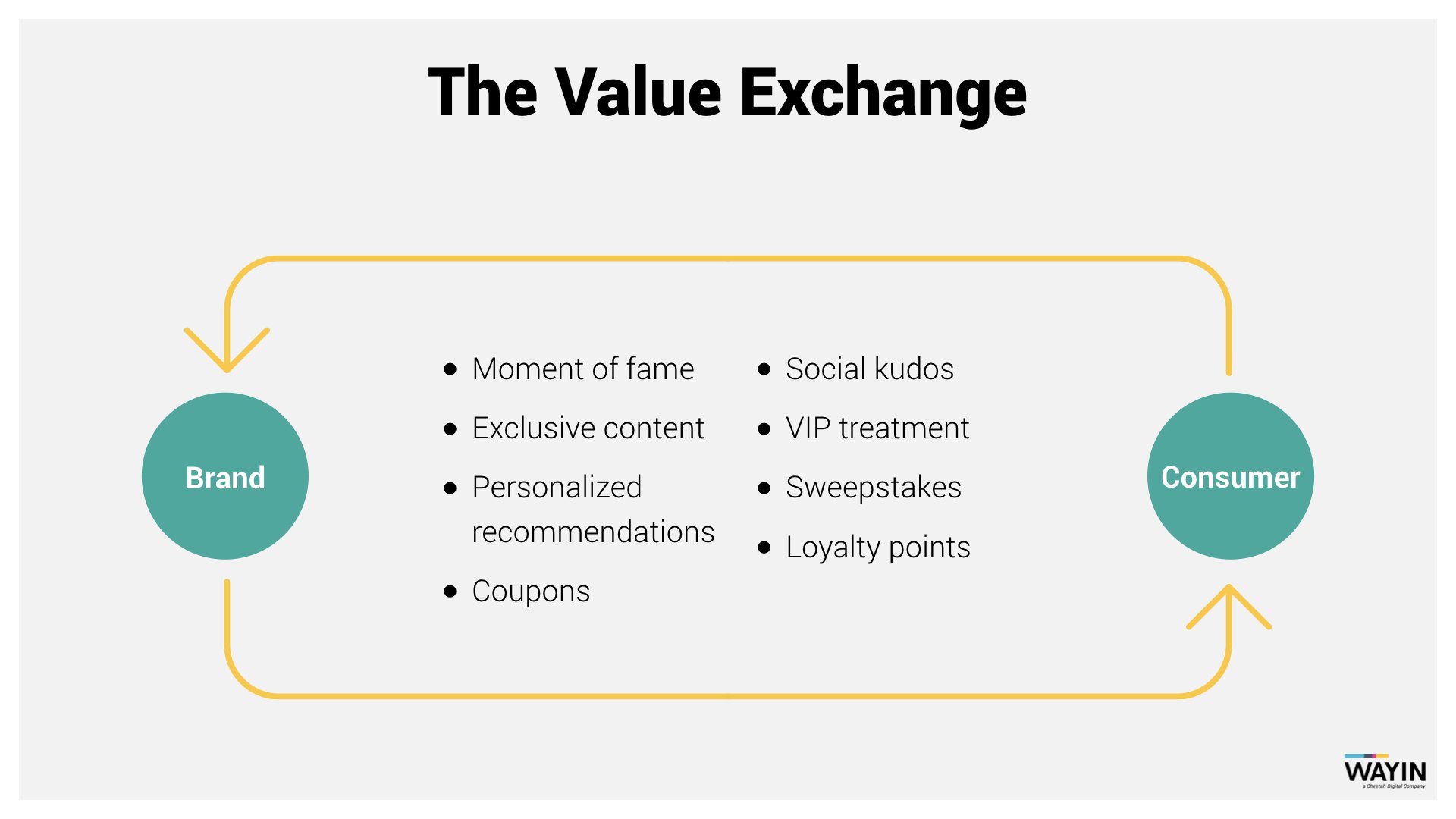
The marketer’s job specification used to be a little more straightforward. Buyer personas would be crafted, innovative campaigns were created and personalization was powered by masses of data points aggregated from all manner of third-party sources.
But then came the Cambridge Analytica scandal, the enactment of global privacy legislation and the epiphany that much of this data that had been purchased from third-party vendors was stale and inaccurate. Furthermore, the consumer data filling most marketing databases hadn’t been collected with the consents mapped to the way marketers were using the data, meaning it fell afoul of burgeoning privacy legislation.
In light of this, there has become a need to re-evaluate the relationship between brands and consumers and how marketers collect the data they use to power their campaigns. It’s time to embrace the value exchange economy.
The limitations of third-party data
Third-party data plays a role in connecting with digital consumers, but marketers’ overreliance on it has led to the shift in the data landscape we see today.
This class of data is commonly amassed from a host of unrelated and unreliable sources like credit scores, cookies and click trails. As a result, it quickly becomes antiquated and has no direct relationship with the individual consumer, which ultimately hampers the quality and effectiveness of campaigns.
Consumer preferences, budgets, household sizes and the like all evolve and change as time passes, and third-party consumer data rapidly becomes limited in value.
Zero-Party Data
It is possible for marketers to know what their customers intend to do or buy in the future when they collect data that is intentionally and proactively shared directly by the consumer. This is called zero-party data.
This may sound a lot like first-party data with a 2019 rebrand, but zero-party data is collected directly from your customers and not by using tracking pixels, cookies or cross-device identification. Most important, zero-party data is accurate information, not inferred.
Zero-party data allows brands to build direct relationships with consumers, and in turn, better personalize their marketing efforts, services, offers, and product recommendations. Since it comes directly and willingly from the consumer, there are no intermediaries and no guesswork. So no spamming customers with ads for products they’ve already bought or do not intend to purchase.
But it’s not simply a case of ask, and you shall receive. Digital consumers are more scrupulous than ever when it comes to handing over their personal details and preference data. You need to offer a value exchange.

Harnessing the value exchange economy
To collect the data required to power true personalization, consumers need to be entertained, engaged and receive something in return for their attention and preference data.
Brands can deliver this through interactive experiences that conduct research, accrue opt-ins and deliver an altogether better experience with a value exchange for the consumer.
Questionnaires, polls, quizzes, contests or social stories can incorporate reward mechanics that give consumers a genuine reason to engage and submit their first- and zero-party data. And it doesn’t always have to be a discount or red-letter prize: exclusive content, social kudos, personalized recommendations and loyalty points can also be the catalyst for the collection of opt-ins and zero-party data.
Capturing consumer motivations, intentions, interests and preferences at scale allows for a personalized customer experience. And by leveraging the right mechanics, and offering a value exchange, your customers will tell you what products they desire, what they look for in a service, and what motivates them to purchase.
Moving to a zero-party data strategy means that your audience building and profiling doesn’t stop, but that it also allows for change. This keeps your data accurate, relevant and current because the data points are coming directly from your audience.
In the first week of September, Firefox announced it will block all third-party tracking cookies by default, with Apple and Google planning similar browser restrictions on the use of tracking cookies. For proactive marketers, there has never been a better time to explore a zero-party data strategy.
read more at https://adage.com/section/rss by Richard Jones
Digital marketing









